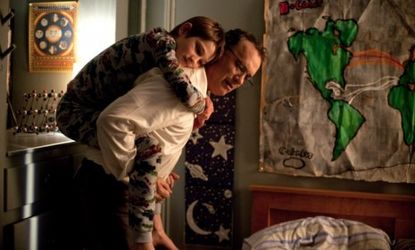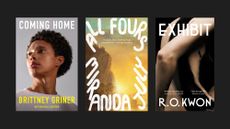Oscars 2012: Are the new Best Picture rules a failure?
A retooled nominating system yielded nine contenders, including the divisive Extremely Loud and Incredibly Close but not the universally beloved Bridesmaids

For the second time in three years, the Academy has tinkered (tailored soldiered spied) with the way it chooses Best Picture nominees. First, in 2009, it expanded the category to 10 contenders "to make room for well-liked, popular films like The Dark Knight," which tended to get snubbed in favor of divisive indie fare like The Reader. Problem: Though Toy Story 3 got a nod, sub-par movies like Winter's Bone also earned nominations, apparently needed to round-out the top 10. Rule revision number two: To avoid such category padding, this year's new rules prescribed that only those films ranked first by at least five percent of voters would make the cut — allowing for as few as five or as many as 10 nominees. An unexpected nine Best Picture contenders were announced Tuesday. In: Smaller, divisive movies that the Academy had hoped to weed out, like Tree of Life and Extremely Loud and Incredibly Close. Out: Critically-praised crowd pleasers like Bridesmaids and The Girl With the Dragon Tattoo. Is the new system a failure?
Yes, the system is too preferential: When a voter's number one selection is the vote that matters most, "it's better to be loved by a small and passionate group instead of liked by a much larger group," says John Young at Entertainment Weekly. "Love-it-or-hate-it" films like Tree of Life and Extremely Loud and Incredibly Close earned their nods because they had a committed contingent of supporters who adored them. Bridesmaids and Dragon Tattoo, on the other hand, were likely ranked second, third, or fourth on a slew of Oscar ballots. Not enough voters "flat-out loved" them to give them the minimum amount of number one votes.
"Best Picture Oscars: So why are there nine nominees?"
Subscribe to The Week
Escape your echo chamber. Get the facts behind the news, plus analysis from multiple perspectives.

Sign up for The Week's Free Newsletters
From our morning news briefing to a weekly Good News Newsletter, get the best of The Week delivered directly to your inbox.
From our morning news briefing to a weekly Good News Newsletter, get the best of The Week delivered directly to your inbox.
What an anticlimax: So instead of 10 nominees, these new rules give us nine, says Jen Chaney at The Washington Post. The Academy should've just stuck to the 10 rule so that films like Dragon Tattoo or Harry Potter could've join the other "worthy contenders." Because "if you’re going to create a bunch of drama around the number of nominees and then come up one shy of what has become the typical total, that just feels like a letdown."
"Oscar nominations 2012: Did the best picture change make a difference?"
This is a step backward: The results are certainly less populist than in recent years, says Spencer Kornhaber at The Atlantic. Of the nine contenders, only The Help is a bonafide hit. The average box office haul of the 2012 Best Picture nominees is $57 million, compared to $120 million in 2011 and $152 million in 2010. "In a way, it's a return to the final years of the five-picture nominations, which were seen as increasingly uncommercial." Whether that's because no film united critics and audiences this year — as Toy Story 3 or Inception did last year — or because of the rule change, it's a shift of direction. "If the Academy was elitist before, it appears it's now gone ultra-1-percent."
"The Oscar Best Picture nominees: (Almost) no big commercial hits!"
Create an account with the same email registered to your subscription to unlock access.
Sign up for Today's Best Articles in your inbox
A free daily email with the biggest news stories of the day – and the best features from TheWeek.com
Kevin Fallon is a reporter for The Daily Beast. Previously, he was the entertainment editor at TheWeek.com and a writer and producer for TheAtlantic.com's entertainment vertical. He is only mildly embarrassed by the fact that he still watches Glee.
-
 In what countries is assisted dying legal or in consideration for being made legal?
In what countries is assisted dying legal or in consideration for being made legal?In the spotlight More countries are granting more people the right to die
By Devika Rao, The Week US Published
-
 5 captivating books to read in May
5 captivating books to read in Maythe week recommends Brittney Griner tells her own story, a coming-of-middle-age novel and more
By Theara Coleman, The Week US Published
-
 The secretive practice of 'catch-and-kill' tabloid journalism
The secretive practice of 'catch-and-kill' tabloid journalismThe Explainer Outlets such as the National Enquirer have become infamous for using the practice
By Justin Klawans, The Week US Published